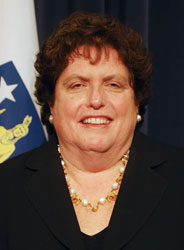Massachusetts DOS Releases Opinion Letter on University of Massachusetts – Amherst Print Shop
The Massachusetts Division of Occupational Safety (DOS) issues prevailing wage schedules to cities, towns, counties, districts, authorities, and agencies of the Commonwealth for construction projects and several other types of public work. These prevailing wage schedules contain hourly wage rates that workers must receive when working on a public project.
DOS Recently Released PW-2010-11-07.29.10 on Prevailing Wages
The DOS regularly issues Prevailing Wage Opinion Letters and recently released PW-2010-11-07.29.10. This letter confirms that the University of Massachusetts is one of “the several departments of the government of the commonwealth” and therefore subject to MGL, c. 5, §1. As such, the print shop at the University of Massachusetts – Amherst “must require its printing contractors…to pay prevailing wage rates to their employees.”
MGL, c. 5, §1 Mandates Prevailing Wages
According to the DOS, the relevant part of MGL, c. 5, §1 provides as follows:
The commissioner of administration, or any other awarding official, in the advertising for bids or the placing of orders for the execution of printing, composition, proof reading, presswork, all processes used in the making of printing plates, paper ruling and binding, or for the supplying of office stationery and blank books without printed headings, for the several departments of the government of the commonwealth other than the legislative department… Contracts or orders shall be given to such establishments only as pay the prevailing rate of wages, based on wage rates and working hours that have been established by collective bargaining agreement or understanding between organized labor and employers; provided, that nothing herein contained shall prevent said commission, or any other awarding official, from placing contracts or orders with existing state institutions or departments which furnish printing or other work of the kind and character above mentioned…
The University of Massachusetts is One of the Several Departments of the Government of the Commonwealth
The DOS concludes that the preponderance of the authority indicates that the University of Massachusetts is one of “the several departments of the government of the commonwealth”. Among other factors are the following
- The University of Massachusetts “is subject to the statutory provisions governing capital facility projects under the division of capital asset management.”
- The University of Massachusetts is subject “to the competitive bidding laws.”
- The University of Massachusetts “does not dispute that it is subject to the prevailing wage law for construction of public works projects.”
- “DOS’s records reflect that the University’s Boston campus regularly requests DOS to provide prevailing wage rates for its printing and binding contracts.”
The DOS Concludes that the University Is Subject to the Prevailing Wage Law
“Because the University is subject to the prevailing wage law for printing, contractors which provide printing services to the University are required to pay the prevailing wage rate set by the DOS for such contracts.”
Vision Payroll Assists Employers Preparing Certified Weekly Payroll Reports
Vision Payroll is ready to assist employers in gathering information for certified weekly payroll reports. Vision Payroll can also prepare the certified weekly payroll reports for submission to the proper authorities. Contact Vision Payroll today to get started.




Vision Payroll